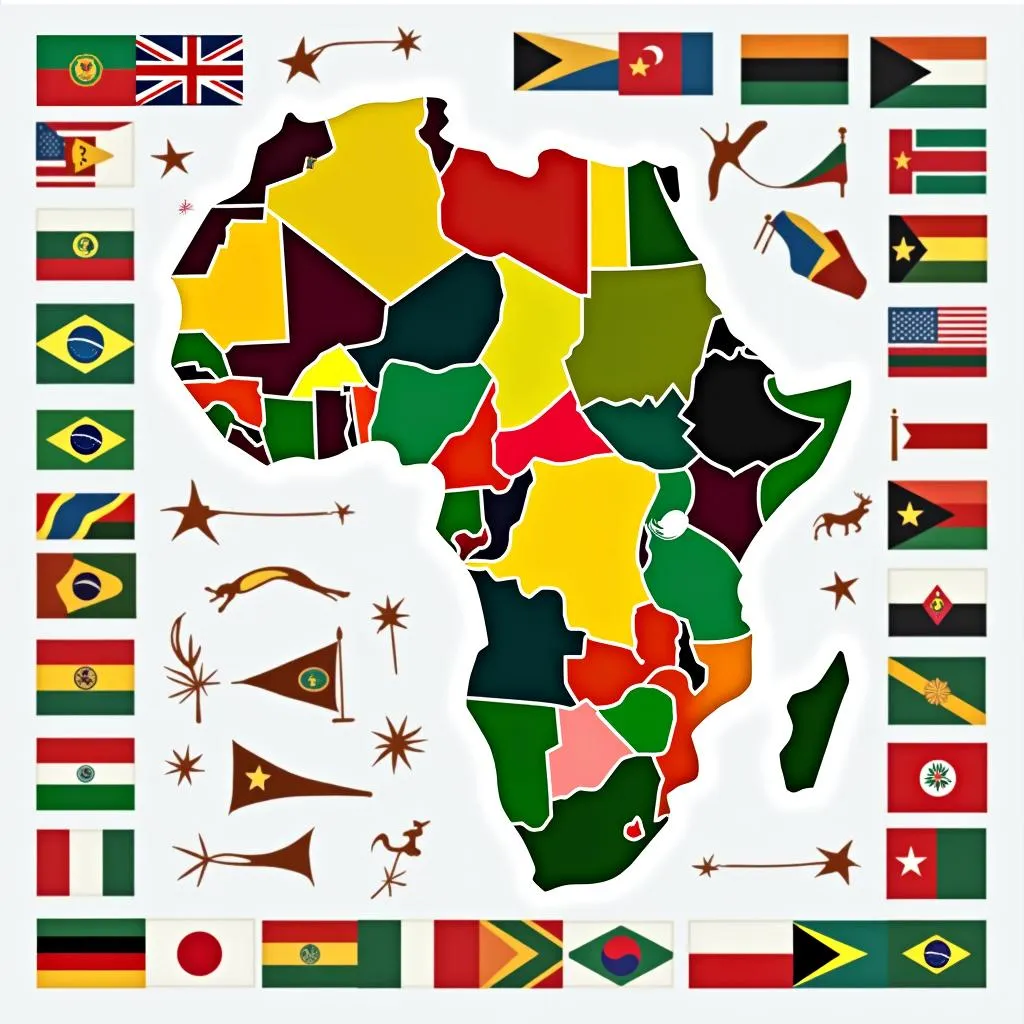Navigating African International Relations
African International Relations are a complex tapestry woven from historical ties, economic partnerships, and socio-political dynamics. This introduction explores the multifaceted nature of these relationships, examining how African nations engage with the global community and each other. From the legacy of colonialism to the rise of pan-Africanism and the pursuit of sustainable development, understanding these intricacies is crucial to grasping Africa’s place in the world.
A Historical Perspective on African International Relations
African international relations didn’t emerge in a vacuum. The continent’s history, particularly the period of colonization, has profoundly shaped its interactions with the rest of the world. The arbitrary borders drawn by colonial powers, the exploitation of resources, and the imposition of foreign systems of governance created lasting impacts. These historical injustices continue to influence African nations’ pursuit of self-determination, economic independence, and equitable partnerships. The struggle against apartheid in South Africa, for example, became a focal point for international solidarity, highlighting the interconnectedness of global politics and the pursuit of human rights.
After the first paragraph, we can already see the importance of understanding historical context. This knowledge informs current policies and relationships. The pursuit of economic independence and equitable partnerships is a direct consequence of past exploitation.
african countries and their capitals in french language
The Rise of Pan-Africanism and Regional Integration
Following independence, many African nations embraced the ideals of Pan-Africanism, a movement advocating for unity and solidarity among African people. Organizations like the Organization of African Unity (OAU), now the African Union (AU), were established to promote cooperation, resolve conflicts, and foster regional integration. The AU plays a vital role in coordinating African responses to global challenges, such as climate change, security threats, and economic development. This unity allows for a stronger, more cohesive voice on the international stage.
The concept of regional integration is key to fostering economic growth and stability. Several regional economic communities, such as the Economic Community of West African States (ECOWAS) and the Southern African Development Community (SADC), have been instrumental in promoting trade, facilitating movement of people, and addressing shared challenges.
African International Relations in a Globalized World
African countries are increasingly active players in global governance and multilateral institutions. They advocate for reforms in international financial institutions, seek greater representation in decision-making processes, and champion issues relevant to developing nations. Climate change, debt relief, and access to technology are among the key priorities for African nations in international forums.
Navigating the complexities of international trade agreements and balancing national interests with global partnerships are ongoing challenges. African countries strive to attract foreign investment, diversify their economies, and ensure that globalization benefits all segments of society.
african journal political science international relations
What Drives African Foreign Policy?
Numerous factors influence African foreign policy decisions. Historical experiences, geographical location, economic considerations, and political ideologies all play a role. Security concerns, such as combating terrorism and transnational crime, are also significant drivers of foreign policy.
Furthermore, the pursuit of sustainable development goals, including poverty reduction, access to education and healthcare, and environmental protection, are central to African foreign policy agendas.
The Future of African International Relations
The future of African international relations appears promising, albeit with challenges. The continent’s growing population, youthful demographics, and abundant natural resources present significant opportunities for economic growth and development. However, addressing issues such as poverty, inequality, and conflict remains crucial for achieving long-term stability and prosperity.
african countries bordering the mediterranean sea
Strengthening regional integration, fostering good governance, and promoting inclusive development are essential for building a more resilient and prosperous Africa. The continent’s engagement with the global community will continue to evolve, with African nations playing an increasingly assertive role in shaping the future of international relations.
Conclusion
African international relations are dynamic and multifaceted, shaped by historical legacies, contemporary challenges, and aspirations for a better future. Understanding these complexities is essential for fostering mutually beneficial partnerships and promoting sustainable development across the continent. African nations continue to navigate the global landscape, advocating for their interests and working towards a more just and equitable world order. African international relations will continue to play a pivotal role in shaping the continent’s destiny and its contributions to the global community.
FAQ
- What is the role of the African Union in international relations?
- How does colonialism continue to impact African foreign policy?
- What are some key challenges facing African countries in global trade?
- How are African nations addressing the issue of climate change?
- What is the significance of regional integration in Africa?
- How can international partnerships support sustainable development in Africa?
- What are some emerging trends in African international relations?
Need More Help?
For further assistance regarding African international relations, explore these related topics:
If you require specific support, don’t hesitate to contact us:
Phone: +255768904061
Email: kaka.mag@gmail.com
Address: Mbarali DC Mawindi, Kangaga, Tanzania
We have a 24/7 customer support team ready to assist you.


